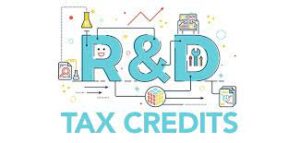Financial Experts Reveal the Top Tax Credits for Business Owners
Are you ready to take your financial game to the next level? As we all know, taxes can be a bit of a headache, but did you know that there are certain tax credits that can actually work in your favor? That’s right, we have bought top tax credits for business owners. It can help reduce the amount of taxes you owe and even increase your bottom line. So, whether you’re a seasoned business owner or starting out, it’s important to know which tax credits can benefit you the most.
But wait, what exactly are tax credits, you ask? Tax credits are dollar-for-dollar reductions in the amount of taxes you owe, meaning they reduce your tax bill. Unlike deductions, which reduce your taxable income, tax credits reduce your actual tax liability. So, the more tax credits you qualify for, the more money you can save.
Now, you may be thinking, “I’m not an expert in taxes, how am I supposed to know which credits are best for my business?” That’s where we come in! We’ve talked to some financial experts and they’ve revealed the top tax credits for business owners which they should know about. So, sit tight and get ready to take notes, because these tax credits for business owners could make a big difference in your financial success.
The R&D Tax Credit

It’s a tax credit that’s been around for quite some time, but few people are aware of it or know how to take advantage of it. So, let’s dive in and learn more about this credit.
The R&D tax credit is a government incentive that rewards businesses that engage in research and development (R&D) activities. These activities must improve an industry- or public-benefiting product, process, or software.
Now, you may be wondering if your business is eligible for the R&D tax credit. The good news is that this credit is not limited to large corporations or tech companies. This credit is available to small, and medium-sized, software development, pharmaceutical, and engineering firms. A tax professional or the IRS’s eligibility requirements can help you determine if your business qualifies.
So, how do you claim the R&D tax credit? First, you need to keep detailed records of your R&D activities, including the time spent and costs associated with the project. This documentation will be used to calculate the credit amount. You’ll also need to file Form 6765, which is for claiming the R&D tax credit, along with your business tax return.
It’s important to note that claiming the R&D tax credit can be a complicated process. If you need help, it’s best to talk to a tax expert who knows a lot about this area. They can guide you through the process and ensure that you maximize your credit.
The Work Opportunity Tax Credit (WOTC)
This is a federal tax credit that provides an incentive for businesses to hire workers from targeted groups. They are the workers who have faced barriers to employment.
So what exactly is the WOTC? It’s a tax credit that businesses can claim when they hire individuals from specific target groups. These groups include
- Long-term unemployed individuals
- Veterans
- SNAP (food stamp) recipients
- Ex-felons
- Designated community residents
- Vocational rehabilitation referrals
- Supplemental Security Income (SSI) recipients
- Summer youth employees
- TANF (Temporary Assistance for Needy Families) recipients
Depending on the target group, businesses can receive a tax credit of up to $9,600 per eligible employee. This credit can be used to offset the business’s federal income tax liability.
But who is eligible for this credit? Any business that hires employees from the target groups listed above can potentially claim the credit. This includes businesses of all sizes and in all industries. However, the credit is only available for eligible employees who start work on or before December 31, 2025.
Let’s take a look at some examples of businesses that may be eligible for the WOTC. A construction company that hires a veteran to work on a job site could claim the credit. A restaurant that hires a summer youth employee could also claim the credit. Even a small business that hires a long-term unemployed individual could claim the credit.
So how do you claim the credit? First, businesses must complete Form 8850, which is the Work Opportunity Credit Pre-Screening Notice & Certification Request. This form must then submit to the state workforce agency within 28 days of the eligible employee’s start date.
Once the employee has certified as eligible for the credit, the business can claim the credit on its tax return using Form 5884. The credit can use to offset the business’s federal income tax liability.
The Employee Retention Credit (ERC)
One of the most effective ways to do this is by taking advantage of tax credits that you may be eligible for. One such credit that’s been gaining a lot of attention lately is the Employee Retention Credit (ERC). In this blog post, we’ll discuss what the ERC is, businesses that may be eligible for the credit, and how to claim it.
The Employee Retention Credit (ERC) is a tax credit which introduced in March 2020. It comes under the Coronavirus Aid Relief and Economic Security (CARES) Act. It was later expanded and extended under the Consolidated Appropriations Act, of 2021 (CAA). The ERC encourages businesses to keep employees despite the COVID-19 pandemic’s economic hardships.
The ERC is a refundable tax credit, which means that you can get it even if you don’t owe any taxes. It’s also refundable, which means that you can get cash back if you have more credit than you need.
The ERC is available to businesses of all sizes that meet certain eligibility criteria. Here are some examples of businesses that may be eligible for the credit:
Businesses that experienced a significant decline in gross receipts:
If your company’s gross receipts fell by more than 20% in any quarter of 2020 or 2021 compared to the same quarter in 2019, you may be eligible for the ERC.
Businesses suspended by government orders:
If your business was suspended by a COVID-19-related government order, you may be eligible for the ERC.
Small businesses with fewer than 500 employees:
Even if your gross receipts didn’t drop or your operations didn’t stop, you may qualify for the ERC.
How to Claim the Employee Retention Credit
If you believe that your business may be eligible for the ERC, you can claim the credit by filing Form 941, Employer’s Quarterly Federal Tax Return. If you’ve already filed your quarterly tax returns for 2020 or 2021, you can file an amended return to claim the credit.
To claim the ERC, you’ll need to calculate the credit amount based on the eligible wages paid to employees during the eligible period. The eligible period depends on when your business became eligible for the credit and can range from March 13, 2020, to December 31, 2021.
The Small Business Health Care Tax Credit
Business owners face many challenges when it comes to providing healthcare for their employees. The Small Business Health Care Tax Credit can help reduce this by providing tax credits to eligible businesses.
So, what exactly is the Small Business Health Care Tax Credit? It is designed to assist small businesses with the costs associated with providing healthcare coverage to employees. To qualify, businesses must have fewer than 25 full-time equal employees. And pay at least half of their employees’ health insurance premiums, and offer coverage through the SHOP Marketplace.
If you meet these criteria, you may be eligible for a 50% tax credit on your employee health insurance premium contributions. Small businesses can use this credit for two years to save money while still providing healthcare to their employees.
So, who might be eligible for this credit? Any small business that meets the criteria outlined above could be eligible. This includes a wide range of businesses, from small retail shops to technology startups. In fact, according to the Small Business Administration, more than 4 million small businesses across the country could be eligible.
If you think your business might be eligible for the credit, it’s important to know how to claim it. First, you’ll need to fill out Form 8941, which is the Credit for Small Employer Health Insurance Premiums form. This form will help you calculate your credit based on your contributions towards your employees’ health insurance premiums.
Once you’ve filled out Form 8941, you’ll need to include it with your business tax return. This will allow you to claim the credit and reduce your tax liability by the amount of the credit. It’s important to note that the credit is only available to businesses that are profitable. So if your business is currently operating at a loss, you may not be able to claim the credit.
Conclusion
In conclusion, we’ve covered a lot of ground in this blog post about the top tax credits for business owners. We began by emphasizing the importance of tax credits and how they can benefit your business financially. We then delved into several tax credits that are particularly valuable for business owners. Like the Research and Development Tax Credit, the Work Opportunity Tax Credit, and the Small Business Health Care Tax Credit.
We also discussed the benefits of working with a financial expert to optimize your tax strategy and maximize your tax credits. Financial experts have the knowledge and expertise to help you identify all the tax credits available to you. Understand the complex tax laws and regulations, and navigate the tax filing process.
We want to encourage all business owners! to explore tax credits and take advantage of these opportunities to reduce their tax liability and boost their bottom line. By working with a financial expert, you can optimize your tax strategy and ensure that you are making the most of all available tax credits.










